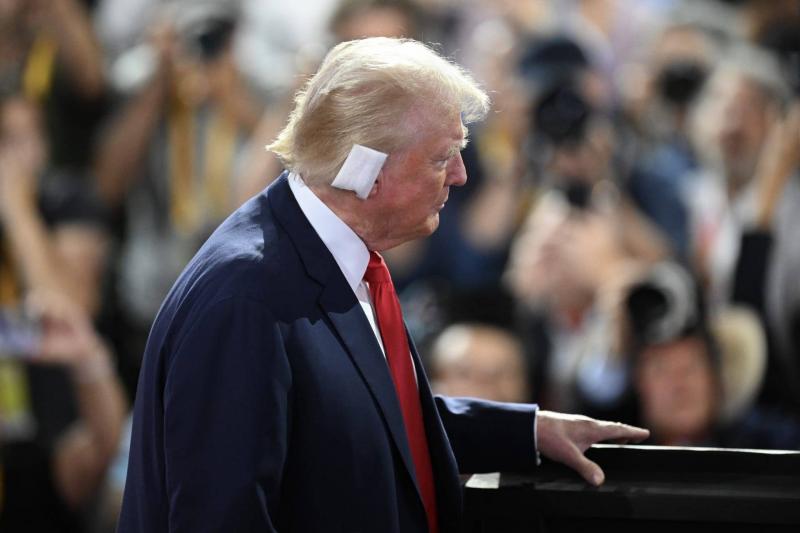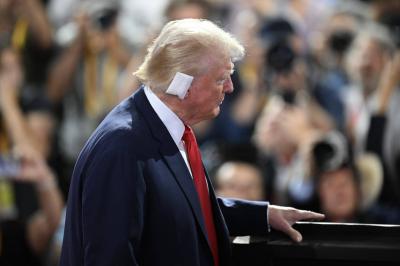The history of American presidential elections is filled with unexpected surprises that shake the institutional process of selecting a president, which is supposed to be a stable process occurring every four years. The preparation for these elections begins early, leading to a series of primaries for both the Democratic and Republican parties. Between the party primaries and the final contest between the candidates, there are various forms of debates, some focusing on domestic policies, others on foreign policies, and sometimes addressing both in a single debate.
Moreover, participation in elections means being part of an artificial process concerning the president, from speechwriting to participating in press conferences, TV and print advertisements, maneuvering against opponents, exposing their hidden secrets and what they have kept confidential. While elections can be likened to an earthquake that reverberates through the American nation, its allies, and foes, they also resemble a grand festival akin to engaging films, a human race in which people await the eventual winner.
Despite the excitement surrounding them, when all is said and done, the process of defining future excitement begins. Many elections have taken place recently in European countries, Iran, France, the United Kingdom, and India; however, none have garnered the attention that the American elections and their unfolding narratives have received. Just last month, the debate between current President Biden and former President Trump became the primary story in American elections. Oddly, those following it might wholly fail to grasp what transpired in the debate, overshadowed by President Biden’s robotic movements while entering and exiting, coupled with his stutter and difficulty in articulating issues. On the other hand, when Trump uttered numerous exposed lies, no one took the patience to dissect them, while the narrative around President Biden evolved into a portrayal of the Democratic Party that grappled with what to do about Biden, whom the party's grassroots had previously chosen with an unprecedented 87% in the primaries. The president seemed to lack the cohesion and discipline needed; even during the NATO anniversary meeting, he struggled to articulate, blending up the Ukrainian president Zelensky with Russian President Putin.
This situation became a crisis within the Democratic Party, torn between those who cling to their nominee and those who call for a different candidate to give the party a fair chance in the upcoming elections. The dilemma is that moving in this direction creates additional crises among supporters and opponents of various candidates, and as things seemed to settle relatively on Vice President Kamala Harris, questions arose about whether she has done anything noteworthy during her years in office that would justify her candidacy to lead the country.
Amidst this extensive uproar, it largely favored the other candidate, Donald Trump, who found himself ensnared in judicial accusations and rulings that should have left him at a disadvantage in the electoral landscape. However, an assassination attempt on the Republican nominee and former president shifted circumstances more drastically in his favor, placing him in a winning scenario. Trump, adept at media appearances and exploiting spontaneous opportunities, found himself in the right moment when a bullet grazed his ear, enough to inflict a wound that seeped blood onto his shirt and face, creating a historic visual before the cameras; at the same time, his safety allowed him to clench his fist and demand astonished crowds to fight with a rallying cry: "Fight."
Amidst this atmosphere, the Republican Party conference convened with no competition whatsoever, and apart from selecting J.D. Vance as vice president, the conference turned into a sort of wedding for the former president to return to the White House. It was natural for public opinion polls to elevate Trump's standing, pushing him into positions that could allow him to compete effectively or even surpass them before the elections, especially as judicial rulings might arise. Yet Trump was until that point significantly fortunate when a judge he appointed ruled in his favor regarding the presidential documents he unlawfully took from the White House to his home in Mar-a-Lago, Florida, based on a legal opinion from one of the conservative Supreme Court Justices. The ruling stated that the Constitution grants absolute immunity to the president regarding his official actions and words, which led Trump to presume his innocence concerning all other accusations.
All these winds blow in favor of former President Donald Trump, primarily because he enjoys robust support from the Republican Party around him and his electoral base drawn from other extremist groups. Furthermore, he has managed to unburden himself from the weight of allegations and judicial rulings while his opponent in the White House appears troubled most of the time. This instability could double in the upcoming period due to party and electoral pressures, in addition to Biden’s health and general inability to articulate ideas that adequately convey what he has achieved and what he intends to achieve if re-elected.
Lastly, the American media and various political groups seem to exhibit signs of resignation, making Trump's return to the White House appear a kind of temporal inevitability. Even though all of this is possible, the prospects for a retreat from such a situation are also viable, contingent on the presence of other conditions, including that Trump's issues remain more than forgivable, and that the Democratic Party retains its unwillingness to abandon their base, with Biden being seen as a stubborn politician who has established an image of being experienced and honest in a challenging world. In contrast, Trump has consistently represented a personality keen on various forms of disruption within American politics and the world at large.
Calculating the balance between all this is challenging now, but what is certain is that at the moment of writing this article, the scales tipped in favor of Trump. However, as we began this piece, it must be noted that surprises in American elections abound as much as assassination attempts and violence have.




